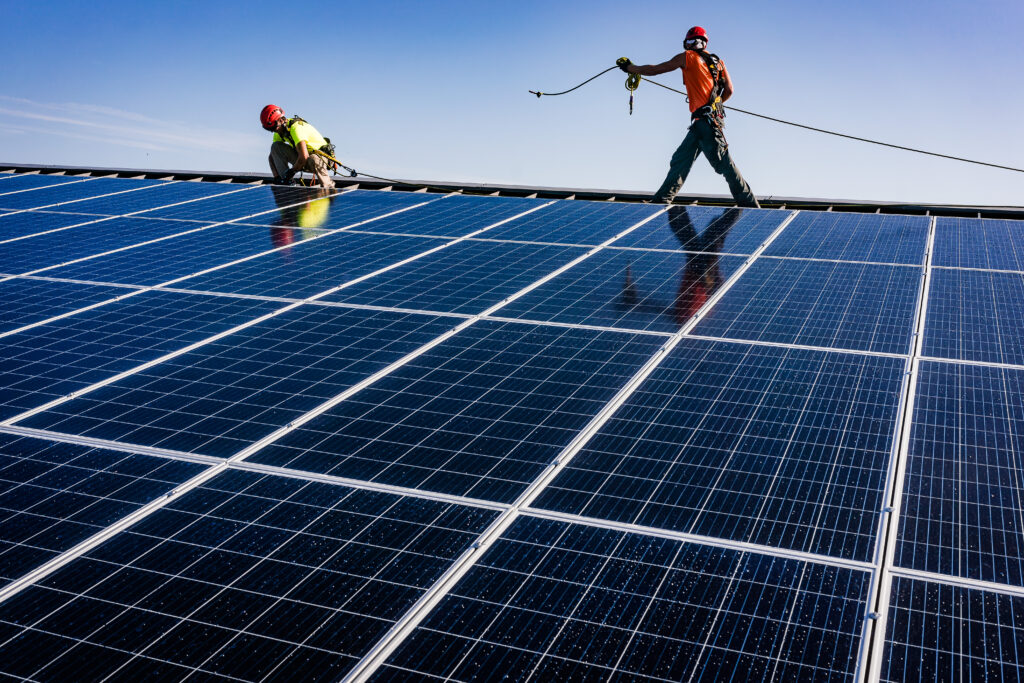Oct 22, 2021
Two School Divisions in Southwest Virginia Go Solar

Schools in Wise County and Lee County Hire Secure Futures to Install a Total of 3.2 Megawatts of Solar Power Systems on 9 Campuses
Secure Futures Solar has signed an agreement with school divisions in Wise and Lee Counties in Southwest Virginia to install solar power systems on site at nine campuses across both counties. Both school divisions will receive solar power equipment at no upfront cost financed by power purchase agreements. All solar projects will also include, at no additional cost, services to support workforce development and to add lessons on clean energy to classroom curricula.
In Wise County, solar power systems will be installed at four elementary and middle school campuses under a 20-year PPA, which is expected to save the school division $7.5 million over the lifetime of the solar equipment by helping reduce demand for power from the local electric utility. In Lee County, five elementary, middle and high schools will host solar power systems under a 25-year PPA, expected to save $4 million in avoided energy costs. Three campuses of Lee County Schools will also receive roof restoration services under the school division’s solar power purchase agreement.
Wise County represents the first “ambassador” project in a campaign known as Securing Solar for Southwest Virginia founded to install solar power, create well-paying clean energy jobs and establish a local solar power industry in the coalfield region of Southwest Virginia. The initiative, a partnership between Secure Futures and the Solar Workgroup of Southwest Virginia, has committed to install five solar ambassador projects over a two-year period with a total generating capacity of ten megawatts.
“We are pleased that the campaign has just booked its first two projects within days of each other,” said Secure Futures President Anthony Smith. “Going solar will help schools in Wise and Lee Counties save money on power that they can invest in their core educational mission. Both projects will also provide an on-ramp for local workers to the solar industry, the fastest-growing job creator in the United States today.”
The Securing Solar campaign supports economic development for the coalfield region that is sustainable both financially and environmentally through a unique approach to seeding a solar industry based locally in Southwest Virginia.
First, the campaign offers job training to help local workers qualify as certified solar installers through a partnership between Mountain Empire Community College and local vocational technology and high schools. But, unlike other workforce development efforts that train workers but do not offer them any immediate employment (an approach known as “push and pray”), Securing Solar will graduate newly trained solar installers directly into work on live projects in the local area (an approach called “demand-pull”).
Second, the campaign has founded a locally based solar installation company, Lonesome Pine Solar, to employ the newly trained workers on projects developed by the Securing Solar campaign. Starting with Wise and Lee County Schools, the start-up company will continue to employ workers to complete future projects from Securing Solar. Once the campaign is completed, Lonesome Pine will remain to provide on-site solar power to commercial and residential solar customers in Southwest Virginia.
“We hope that momentum from our ambassador projects will stimulate demand for additional schools, hospitals, businesses and homeowners to go solar in Southwest Virginia and to consider Lonesome Pine as their first choice,” said Smith. “With enough activity, this locally based effort can generate more solar jobs and ripple out into local spending and investment that benefits the whole community.”
Recent changes to state law covering utility territories of Appalachian Power and Old Dominion Power have made distributed solar projects more viable in Southwest Virginia. Bills passed by the Virginia General Assembly and sponsored by Sen. John Edwards of Roanoke, Del. Chris Hurst of Blacksburg and Del. Terry Kilgore of Gate City lifted restrictions on net metering and made clear that public entities such as schools, town halls, libraries and landfills are allowed to finance solar projects through power purchase agreements.